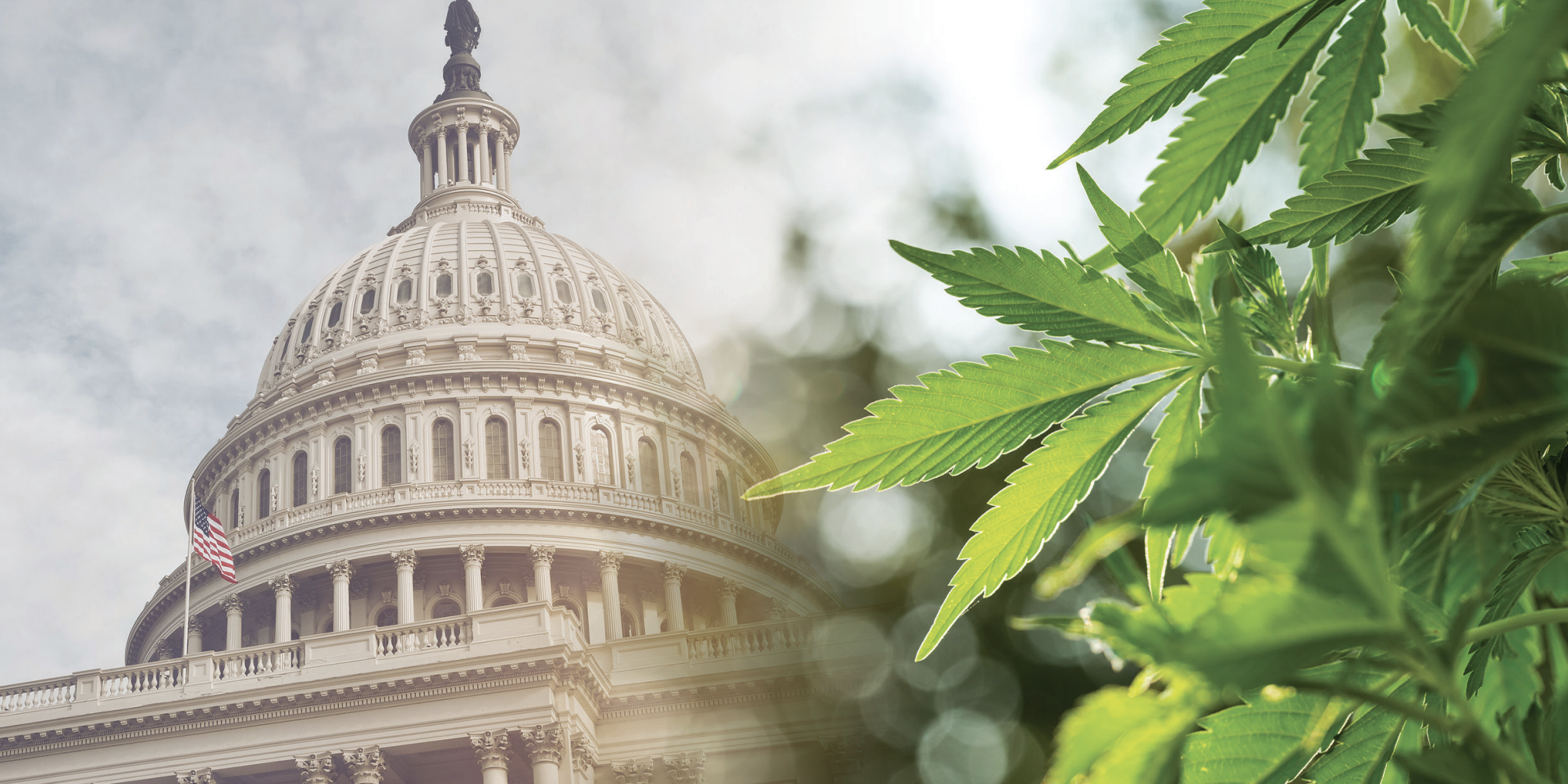Nine in 10 people surveyed in the United States say marijuana should be legal for adult use or medical purposes, a new Pew Research Center poll finds. And most agree that legalization bolsters local economies and makes the criminal-legal system fairer.
The report, released on March 26, found that 88 percent of respondents back legalization in some form, including a 57 percent majority who say it should be accessible for medical and adult use. Just 11 percent said cannabis should be prohibited altogether.
There were several common themes in terms of demographic breakdowns. Democrats were more likely to support complete legalization (72 percent), compared to 42 percent of Republicans. However, 82 percent of Republicans and 94 percent of Democrats back legalization for at least medical purposes.
“There continue to be ideological differences within each party,” the research firm said, noting that moderate- and liberal-leaning GOP identifiers are significantly more likely to support complete legalization (57 percent), versus conservative Republicans (34 percent).
Pew also asked respondents about their views on the societal impacts of adult-use legalization, and the results showed that a majority (52 percent) feels the reform is “good” for local economies. A 42-percent plurality additionally agreed that legalization would make the criminal-legal system “more fair.”
There were larger divides on how legalization affects the use of other drugs.
There were larger divides on how legalization affects the use of other drugs (i.e. the debunked “gateway drug” effect) and community safety.
Twenty-seven percent of respondents said that marijuana legalization “decreases” the use of other drugs such as heroin and fentanyl, while 29 percent said it “increases” such use. A plurality (42 percent) said it has “no impact.”
More people said that legalization causes communities to be less safe (34 percent), compared to those who said the reform improves community safety (21 percent). A plurality (44 percent) said it has “no impact.”
“Sizable age and partisan differences persist on the issue of marijuana legalization though small shares of adults across demographic groups are completely opposed to it,” Pew said. “Older adults are far less likely than younger adults to favor marijuana legalization.”
“This is particularly the case among adults ages 75 and older,” the report continued. Thirty-one percent were in favor of both medical and adult-use legalization. “By comparison, half of adults between the ages of 65 and 74 say marijuana should be legal … and larger shares in younger age groups say the same.”
An overwhelming share of U.S. adults (88%) say marijuana should be legal for medical or recreational use. Just 11% of Americans say that the drug should not be legal at all. Dive in: https://t.co/JhG9VLqv6i
— Pew Research Center (@pewresearch) March 26, 2024
Overall, this is the latest in a series of polls over recent years showing majority support for ending marijuana prohibition.
For example, a Gallup poll from November 2023 found that support for marijuana legalization has reached a new record high nationally, with seven in 10 respondents—including a sizable majority of Republicans, Democrats and independents—now backing an end to prohibition.
Another survey released in March found that a strong majority of voters in three states—including more than 60 percent of Republicans—support congressional legislation to protect states’ rights to set their own marijuana laws.
“There’s no ‘buyer’s remorse’ among the public when it comes to legalizing cannabis,” NORML Deputy Director Paul Armentano said in statement about the new Pew poll. “As more states have adopted legalization, public support for this policy has risen dramatically. That’s because these policies are largely working as intended and because voters prefer legalization and regulation over the failed policy of cannabis prohibition. Elected officials who refuse to take action to end cannabis criminalization do so at their own political peril.”
Pew also released a separate report in February that found eight in 10 respondents now live in a county with at least one marijuana dispensary. The analysis also shows that high concentrations of retailers often “cluster” near borders abutting other states that have “less permissive cannabis laws”—indicating that there’s a large market of people who live in still-criminalized jurisdictions who cross state lines to purchase regulated products.
Image via Congress.gov
This story was originally published by Marijuana Moment, which tracks the politics and policy of cannabis and drugs. Follow Marijuana Moment on Twitter and Facebook, and sign up for its newsletter.





Show Comments